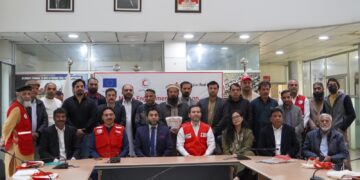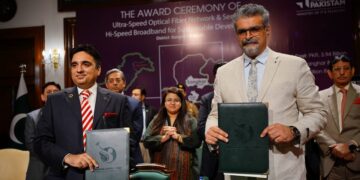Islamabad: As Eidul Fitr approaches, consumers in Pakistan may face a significant hike in petrol prices by about Rs10-11 per litre starting Sunday, March 31, for the next fortnight. This increase is primarily attributed to higher import premiums and global prices.
On the contrary, the price of high-speed diesel (HSD) is anticipated to decrease by up to Rs2 per litre.
With petrol’s current ex-depot price hovering around Rs280 per litre, the upcoming review could push its rate beyond Rs290.
Sources indicate that the import price of petrol has risen by approximately $4 per barrel, while its import premium has increased to $13.5 per barrel from $12.15 a fortnight ago due to geopolitical tensions. Consequently, the price of petrol is expected to surge by Rs10-11 per litre, contingent on the final exchange rate calculation.
Conversely, the HSD price has decreased in the international market, and the import premium paid by Pakistan State Oil (PSO) remains unchanged at $6.50 per barrel. Therefore, the rate of high-speed diesel is estimated to decline by Rs1.30 to Rs2.50 per litre, subject to the final exchange rate adjustment in pricing.
In the previous fortnightly review, the government maintained the petrol price at Rs279.75 per litre and reduced HSD’s rate by Rs1.77 per litre to Rs285.56.
The government currently imposes a petroleum development levy (PDL) of Rs60 per litre, the maximum permissible limit under the law, on both petrol and HSD. Under commitments made with the International Monetary Fund (IMF), the government aims to collect Rs869 billion in PDL during the current fiscal year.
Petroleum and electricity prices are significant drivers of high inflation in Pakistan. The price of petrol impacts private transport, small vehicles, rickshaws, and two-wheelers, directly affecting the budgets of the middle and lower-middle classes.
Meanwhile, an increase in HSD’s price is considered highly inflationary as it is primarily used in heavy transport vehicles, trains, and agricultural engines like trucks, buses, tractors, tube wells, and threshers, ultimately impacting the prices of vegetables and other essential commodities.
Currently, the government imposes about Rs82 per litre tax on both petrol and HSD, with no general sales tax (GST) on any petroleum product.




















